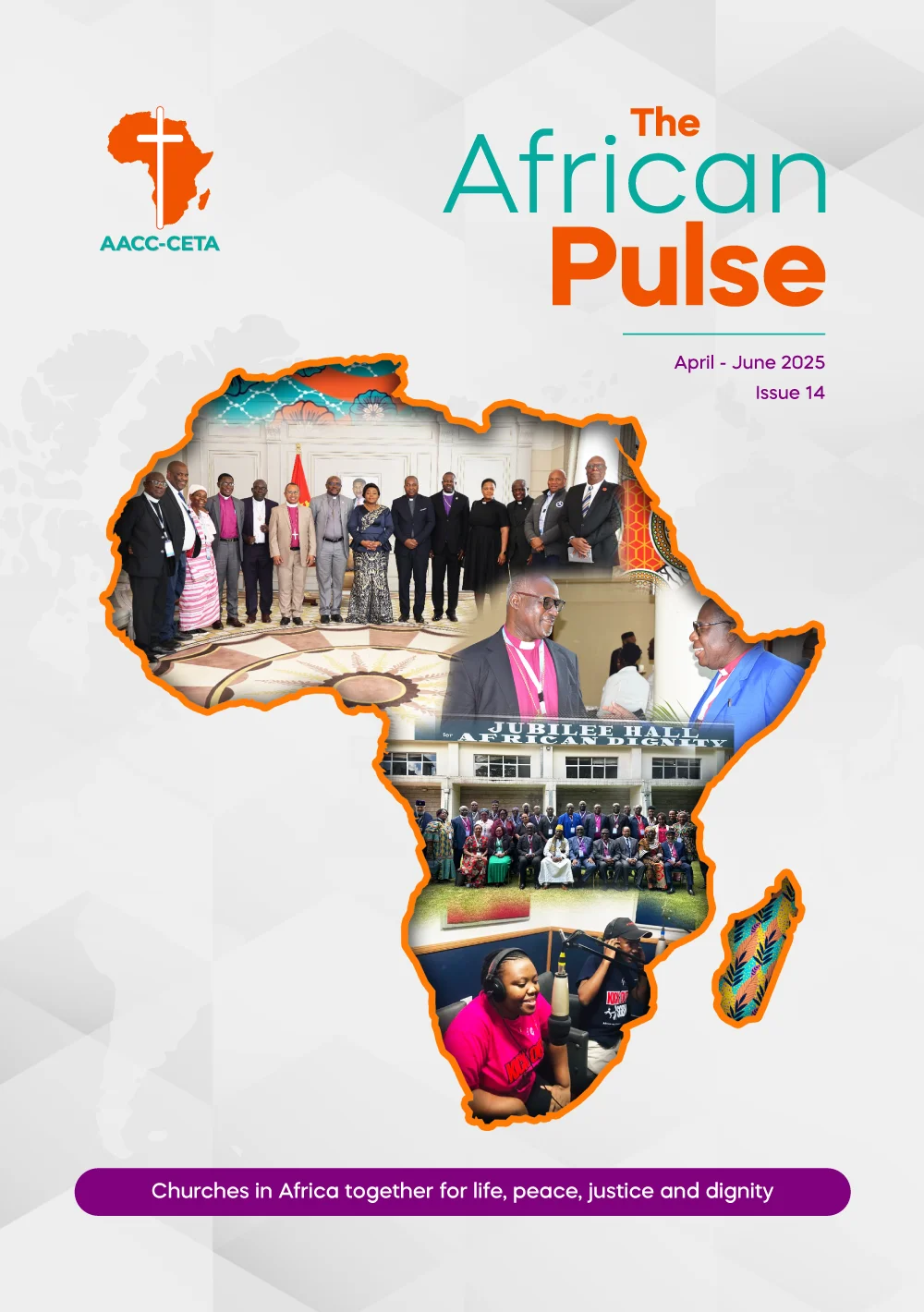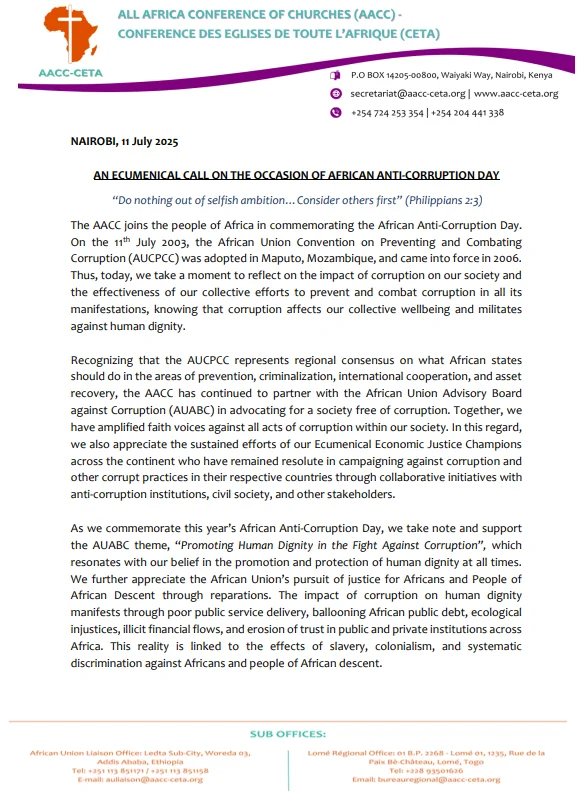-
With the theme, Africa: My Home. My Future., the AAYC is organized to mobilize and empower African youth to shift their resources from migrating out of Africa to building the continent into a prosperous, peaceful, and secure place they want it to be, live in, and desire to leave behind for their descendants to live in and flourish. The Congress plays a crucial role in building confidence, competency, solidarity, and unity of purpose among the young African people for Africa’s sustainable development.Since the inaugural All Africa Youth Congress held in Accra, Ghana, in 2022, the campaign has become a revolutionary force emitting impulses of change that compel youth in AACC member churches to own and work for the realization of the 17 SDGS and the AU Agenda 2063, address the socio-economic injustices that negatively affect Africa’s development and transform Africa’s narrative. Building on the momentum for Africa’s transformation built among young African people by the inaugural congress, the second AAYC will take place in Nairobi, Kenya from 31st October to 5th November 2025.Please click here for more details



